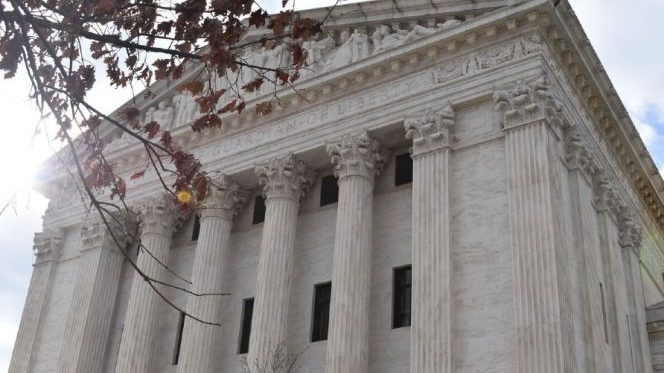The Supreme Court late Wednesday evening halted the execution of a Texas death row inmate who had requested his pastor be allowed to lay hands on him in the execution chamber. The inmate, John Henry Ramirez, was scheduled to be executed Wednesday night.
The court also agreed to hear his case in its upcoming docket this fall, challenging the state’s prohibition of chaplains’ vocal prayer and physical contact with inmates inside the execution chamber.
“The application for stay of execution of sentence of death presented to Justice Alito and by him referred to the Court is granted,” said the Supreme Court in an order issued late Wednesday evening. The case could be argued in October or November 2021, according to the court order.
The order came about three hours before Ramirez was scheduled to be executed. He was sentenced to death in 2008 for the 2004 murder of 45-year-old convenience store clerk Pablo Castro.
Ramirez argued that a Texas Department of Criminal Justice prohibition on audible prayer and physical touch in the execution chamber was an infringement upon his religious liberty. Ramirez sought to have his spiritual advisor, Pastor Dana Moore of Second Baptist Church in Corpus Christi, present with him as he receives lethal injection, and laying hands on him as he is dying.
The court’s decision was praised by advocates for religious freedom.
"We welcome the Court's decision to set this case for argument this fall. This issue deserves the Court's, and the country's, full attention,” Eric Rassbach, vice president and senior counsel at The Becket Fund for Religious Liberty, told CNA on Thursday. “We will urge the Court to recognize that the age-old practice of comfort of clergy is protected by the United States Constitution."
State officials argued that the audible prayer and laying of hands in the chamber would be disruptive and a potential security risk.
Texas in 2019 banned spiritual advisors from the chamber, following condemned inmate Patrick Murphy’s request for a Buddhist chaplain to join him at his execution. At the time, Texas only allowed state employees in the death chamber, and the state did not employ a Buddhist chaplain.
In April 2021, the state criminal justice department updated its policies to once again allow spiritual advisors of any creed to join condemned inmates in the execution chamber. Later, the department added a restriction that chaplains could not pray out loud.
An amicus brief filed by The Becket Fund for Religious Liberty on Tuesday, Sept. 7 called the updated Texas Department of Criminal Justice policy a clear violation of Ramirez’s Constitutional rights.
“Given that focus on history, and the long tradition of audible prayer by clergy at the moment of death, the scope of the constitutional right is clear—audible prayer should be allowed,” the attorneys explained.
Tradition that predates the founding of the United States upholds “respectful, nondisruptive—but audible—prayer at the time of executions,” said the brief.
“Such expression was key to both the solace and spiritual help sought by the condemned and the guiding role the clergy sought to provide."

